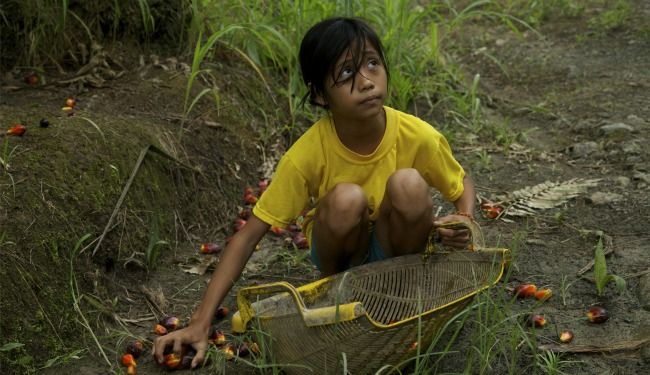It can not be denied that the Indonesian Government relies on the palm oil industry to stimulate economic growth and increase the country’s foreign exchange since Indonesia faced deindustrialization trend due to the declining manufacturing industry. Indonesia has abundant natural resources and extensive land for plantations which provide an opportunity for the country to continue developing the palm oil industry considering the increasing demand of world palm oil.
However, the Indonesian government’s plans to maximize the potential of palm oil encountered various obstacles. The government’s commitment in realizing sustainable palm oil industry is questioned. This is marked by the position of European Unions’s parliament which had just refused Indonesia’s palm oil products with various reasons such as contributing to deforestation and environmental destruction.
The Indonesian government also had a protest and considered that the the position of European Union is a form of protectionism of their local products. The Indonesian government continues to make various diplomatic efforts to convince the EU to extend the use of palm oil production which eventually resulted in an extension of the use of palm oil until 2030 which was decided in June this year.
Looking Ahead of Palm Issues from a Workers Protection Perspective
Extension of the use of palm oil by the EU is like giving a new breath for Indonesia’s government. However, it seems the government cannot just feel a relief to the future of the palm oil. Rejection of the issue of palm actually does not only come from parties who care about environmental issues. The pros and cons of this issue come from various parties, especially those concerned with the welfare of palm oil workers. This is because there is an irony in which workers actually experience various rights violations and also exploitation while the country gains a significant income.
There are at least three major of violations which take place. The first offense is an inhumane wage policy. One of the main problems found in the Indonesian palm oil industry is the issue of wages. Wage rates for workers on plantations are very low which is usually below 100 Euro (1.6 million Rupiah) per month.
In addition, wage policies applied depend on the status of their workers. In the Indonesian palm oil industry, the majority of workers are daily laborers (Stiftung Asienhaus, 2016), who are paid daily in accordance with how many products they produce per day without legal certainty over the working period (Suhib Nuridho, 2015). This daily labor system provides very low salary which causes workers can be dismissed at any time. What makes it worse is that even though workers are already paid very low, they can also face a decrease in wages due to sanctions imposed by employers.
The second offense is the inequality of wages and workloads between male and female workers. According to research conducted by Sawit Watch and Solidaritas Perempuan, there is an inequality between women and men in the palm oil industry with respect to wages and workloads. This happens because the majority of workers’ status is daily labor. The targets for male and female workers to earn a certain wage amount are the same, whereas in Indonesia women workers have a dual role in which they have to do domestic work as unpaid workers. As a consequence, female workers are less able to meet targets and are paid with lower wages compared to male workers. (Achmad Surambo, 2010).
The third violation is the massive involvement of child labor in the palm oil sector. Various studies have shown that child exploitation is happening in oil palm plantations where children aged 8-9 years work seven days a week in hazardous conditions. (Corey Hill, 2014). There are several companies in Indonesia that still involve child labor in running their business.
Amnesty International’s findings indicate that one of the largest companies causing violations against children is Wilmar International Ltd where Wilmar distributes its palm oil to multinational companies such as Unilever, Nestle, Kellogg, and Procter & Gamble. Based on interviews with 120 child laborers, Amnesty International has found that most child labor suffers from low wages and inadequate health and safety protection (Amnesty International, 2016). Although these companies have promised consumers that their supply chain is free from labor exploitation, the fact remains that companies are still doing it.
Momentum for Improvement of Workers’ Rights Fulfillment
Rejection of Indonesia’s palm oil that once announced by the EU can actually be a moment of reflection for the government on how the palm oil industry is run in Indonesia. Instead of protesting against EU policies that are considered in favor to protectionism of their local product, the government should not deny the fact that there are problems in the palm oil industry from upstream to downstream, in which it is marked by the fact that there is a chain of workers exploitation which is massive in the palm oil industry.
The temporary extension until 2030 by the EU can actually be utilized by the government to improve the fulfillment of workers’ rights more dignified knowing that the refusal of Indonesian palm oil exports do not only come from those who care about environmental issues, but also those who uphold human values especially in the fulfillment of dignified workers’ rights.
Improving the fate of workers can provide a new ‘bargaining position’ for the government if Indonesia still wants to expand and export palm oil products. Therefore, using the momentum of extending the use of palm oil to improve the fulfillment of workers’ rights is a wise attitude for the Indonesian government.

